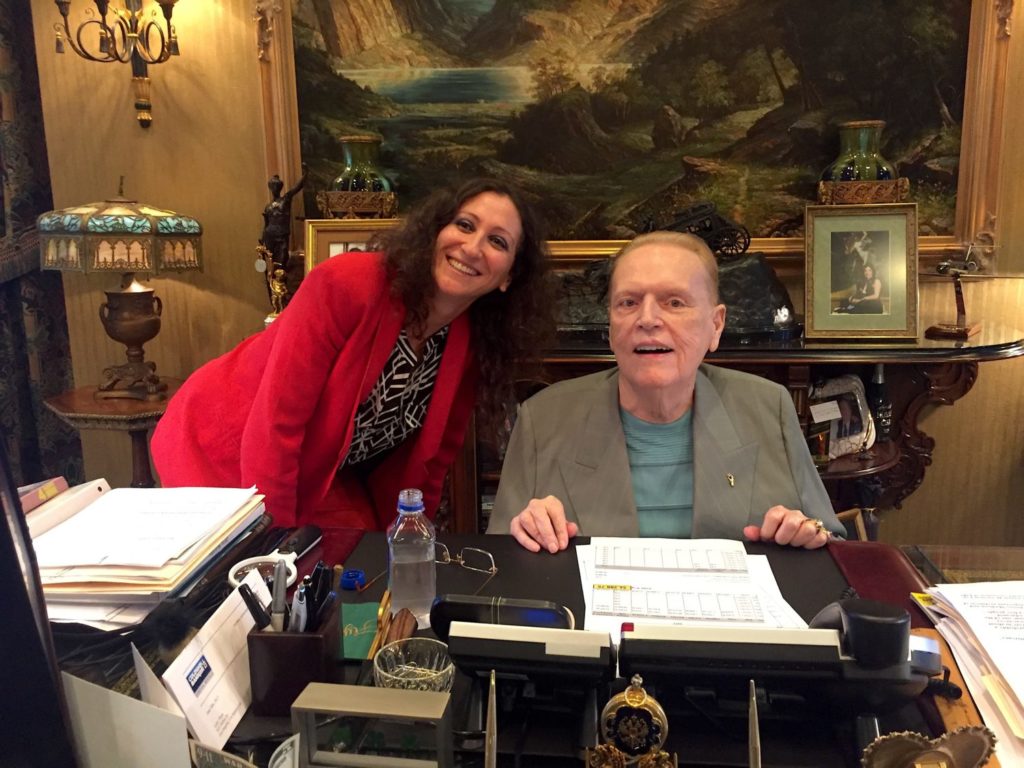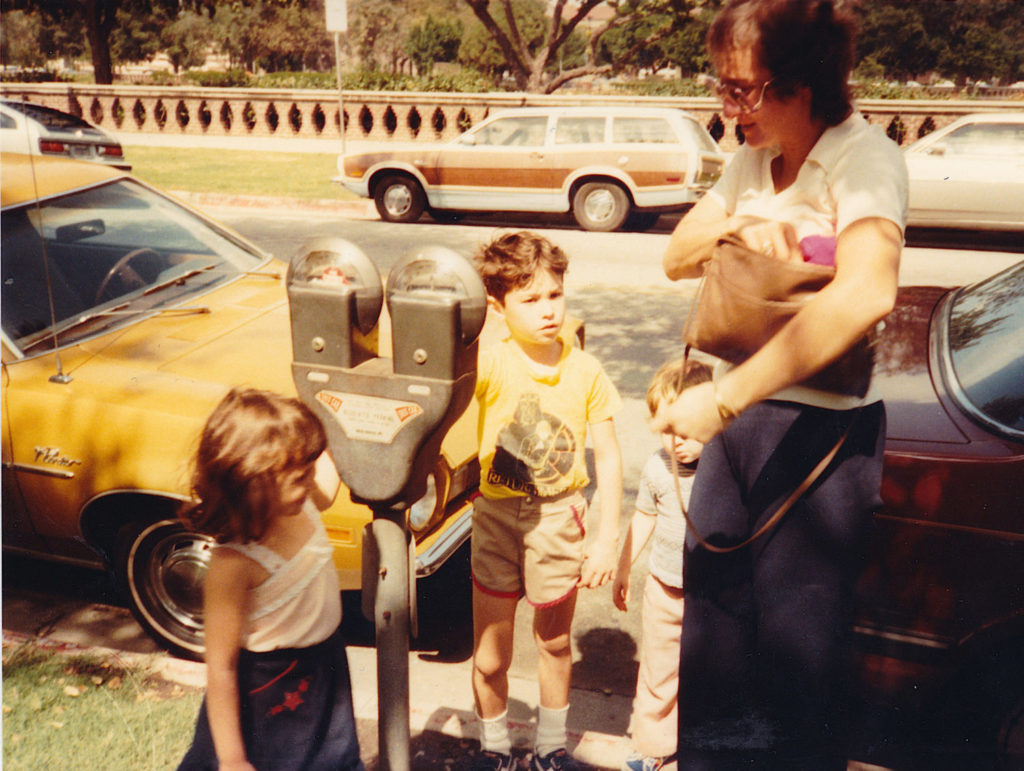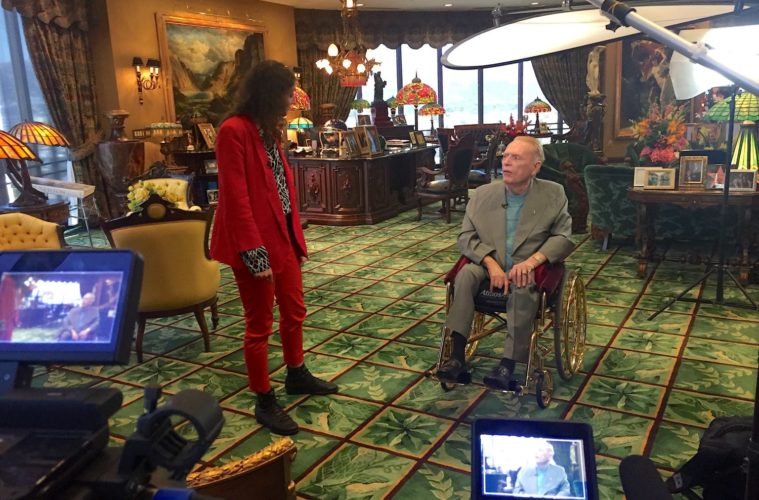Larry Flynt -best known as a champion for First Amendment rights and as the founder of the Hustler empire, which included magazines, casinos, films, websites and retail stores- died at age 78 on February 10, 2021. The publisher passed away in his sleep at Cedars-Sinai Medical Center with family by his side, according to his reps.
His life story was documented in the 1999 Woody Harrelson film The People vs. Larry Flynt, which focused on the many lawsuits he was involved in, most notably his court battle with Reverend Jerry Falwell, which he won in front of the U.S. Supreme Court.
After he was shot in 1978 in front of a courthouse in Georgia during a trial for obscenity, he was left a paraplegic. But he continued to challenge the establishment. Religious and feminist groups decried his output throughout his career, but he argued that even if you didn’t like his content, he still had a right to put it out there. For this reason and more, he identified as a staunch progressive who was vocal about hypocrisy in politics. He was in the news in recent years after offering $10 million for evidence that might lead to the impeachment of Donald Trump.
Of course, beyond anti-porn contingents, he had other detractors (many who worked on his various magazine titles), but his approach to media was as forceful as his well-documented temperament, which ultimately helped to strengthen and widen the scope of the free press.
Rachel Mason -whose critically-acclaimed Netflix documentary Circus of Books featured an on-screen interview with Flynt- outlines here how the fearless media figure had a personal impact on her family, their business and in turn, the LGBTQ community as a whole.
 It was 2004 and the war in Iraq was raging. I was a student at Yale, and through the Student Senate (which I was invited to join by my friend and fellow art student Jen Durbin, daughter of Dick Durbin), I had access to a little fund to invite speakers to the school. When I thought of who would make an engaging guest speaker, my number one choice was Larry Flynt. So I asked my dad for his phone number-my dad was one of his first small time distributors, as I detailed in my film Circus of Books– and soon thereafter, I was on the phone with someone from the Larry Flynt Productions’ office.
It was 2004 and the war in Iraq was raging. I was a student at Yale, and through the Student Senate (which I was invited to join by my friend and fellow art student Jen Durbin, daughter of Dick Durbin), I had access to a little fund to invite speakers to the school. When I thought of who would make an engaging guest speaker, my number one choice was Larry Flynt. So I asked my dad for his phone number-my dad was one of his first small time distributors, as I detailed in my film Circus of Books– and soon thereafter, I was on the phone with someone from the Larry Flynt Productions’ office.
Within a week, the whole event was set up. And a few months later, Mr. Flynt had paid his own way from Los Angeles to New Haven, Connecticut, to speak to students at one of the country’s elite universities. I’m sure it was not lost on him that many from the Bush Administration- which he strongly opposed- had attended the school.
On the day of his scheduled talk, I received an angry tongue lashing from a feminist professor, asking me if I had ever seen Hustler’s infamous cover depicting a woman’s torso going into a meat grinder. I wasn’t surprised about that one, but then about an hour before the event, my phone rang. An unknown number. I answered it and was told that it was the presiding chaplain at Yale University’s Battell Chapel. He had only been made aware that day that Mr. Flynt would be speaking there, and that he was not going to allow it. I told him, respectfully, that the location was chosen because it was wheelchair accessible. The New Haven police were already informed, the student body was already aware and the school senate had already paid the rental fee. There was no stopping this event. The chaplain was irate.
When Mr. Flynt took the stage, his first words revealed that this was the first and only time he had ever spoken at a church in his life. At that moment I realized that maybe my particular comfort with iconoclasts was unique. I didn’t see anything sacrosanct about having Larry Flynt speak in a church. In fact, I felt his presence dignified the holy place.
His speech was breathtaking. His single, if possibly only point, it seemed to me, was: challenge authority. He spoke these words as our government had taken the audacious step of invading a sovereign nation on false pretenses, a central underpinning of Mr. Flynt’s outrage. He implored the students to take responsibility as citizens to question the powers our leaders wield in our name.

(Courtesy Rachel Mason)
Nearly a decade later I sat before Mr. Flynt in his famously gilded office in the penthouse of his building in Los Angeles. At this point, in my own sense of things, I had to reconcile a completely different and more personal side of my meeting with the man who had changed everything for my family. I was there to ask him about how he came to place an ad in the L.A. Times in the mid 1970’s, seeking local distributors for his magazine. This was the ad that my parents responded to, which led to my Dad having his phone number so many years later.
I was moved to hear his answers to my questions in relation to my parent’s business, a business that served the LGBTQ community. In talking to my mom about his impact, she recalled that, “he changed the distribution game in the 1970’s. Before then national distributors controlled the pipeline for magazines, but they wouldn’t touch Hustler, so he began his own network. In addition to Hustler, he also chose to take on a gay title called Blueboy. Eventually he distributed many gay magazines, which was unheard of at the time.”
When I asked him why he chose to include gay magazines in his output, his answer was simple “if there was a market for it, why not?” Call it capitalistic opportunism, or call it a brave act; either way, he gave gay men an outlet to see other men depicted in a glossy, sexy way. He could easily have decided against it, as the mainstream opinion on gay culture during that era had not graduated from one of pure religious condemnation. Had he not taken on these magazines, the publications would have continued to circulate in an underground market, as they had before then. Long before the internet gave marginalized groups access to their larger communities, Flynt helped gay men find each other through these magazines, one of the small steps along the way on the road to acceptance.

(Courtesy Rachel Mason)
In addition to her words about Flynt’s freedom fighter legacy, my mom recalled that she’d interviewed him back when she was a young reporter and he was just starting out his operations of clubs in Cincinnati. In fact, he offered her a job. But at that time, she had loftier goals. Who would have thought that distributing his magazines would have been her livelihood so many years later.
I asked his assistant the day after he passed if he ever saw my film, one of his last appearances on screen. She told me that yes, he watched the film with his wife and he had a smile on his face the whole time.
Now that he’s gone, a lot will be said about this complex and admittedly polarizing man, but no matter how you felt about the graphic content he was best known for, his legacy is also about what he did for the many small business owners like my parents, by being just a great businessman and showing that you can and often should stand up for what you believe when you reach a certain level of status in society. His tenacity is summed up in the words that he stated in an early interview I did with him for Circus of Books: “If you’re going to be a bear, be a grizzly.”
Advertising disclosure: We may receive compensation for some of the links in our stories. Thank you for supporting LA Weekly and our advertisers.

